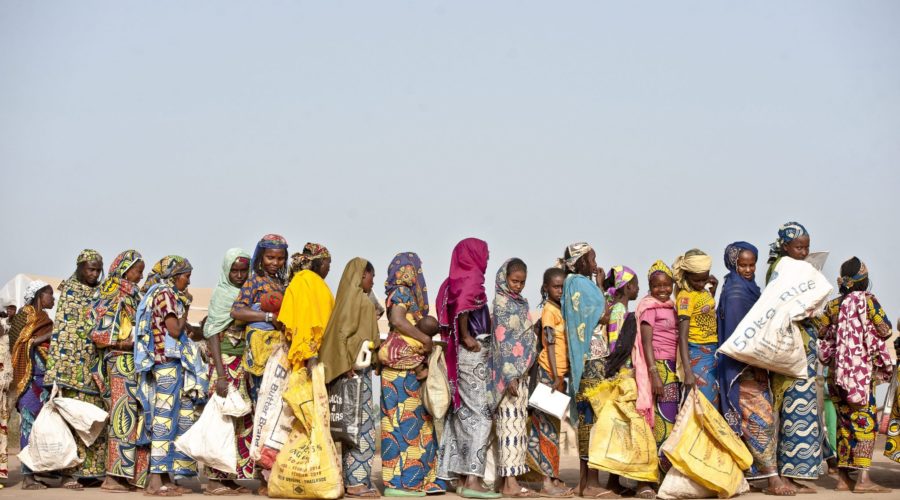The most critical needs exist in Borno, Yobe, and Adamawa where around 8.5 million people had been displaced at the start of 2017. A little more than half of this number are in Borno State alone. In May 2017, the Humanitarian Coordinator invited a Peer-2-Peer Support mission to work with the humanitarian team in Nigeria to look at ways to strengthen the response in the northeast of the country. The Peer-2-Peer team was supported by senior representation from UN agencies (UNICEF) and NGOs (Interaction and the Norwegian Refugee Council) to reflect the inter-agency nature of the humanitarian response on the ground.
The mission concluded with a retreat with the Humanitarian Country Team (HCT). The HCT identified a number of areas where the response could be strengthened and will work on implementing the action plan over the next six months. The team will particularly look at strengthening the relationship with the Government of Nigeria and the military authorities to ensure assistance is delivered in a well-coordinated and principled manner in affected states. The team also committed to expanding humanitarian field presence with the completion of eight humanitarian hubs in deep field locations in Borno. This will bring the humanitarian response and delivery capacity closer to affected people. There was also agreement within the team to build systems that will raise protection concerns regularly and systematically at the HCT for their attention, and build common systems to protect people from sexual exploitation and abuse (PSEA) by humanitarian workers.
Importantly, as part of the action plan, different UN agencies and NGOs committed to take on a leadership role on specific issues related to their area of expertise. This will ensure the response is based on a team dynamic where organisations work together and are provided guidance to deliver assistance based around a commonly agreed vision.



